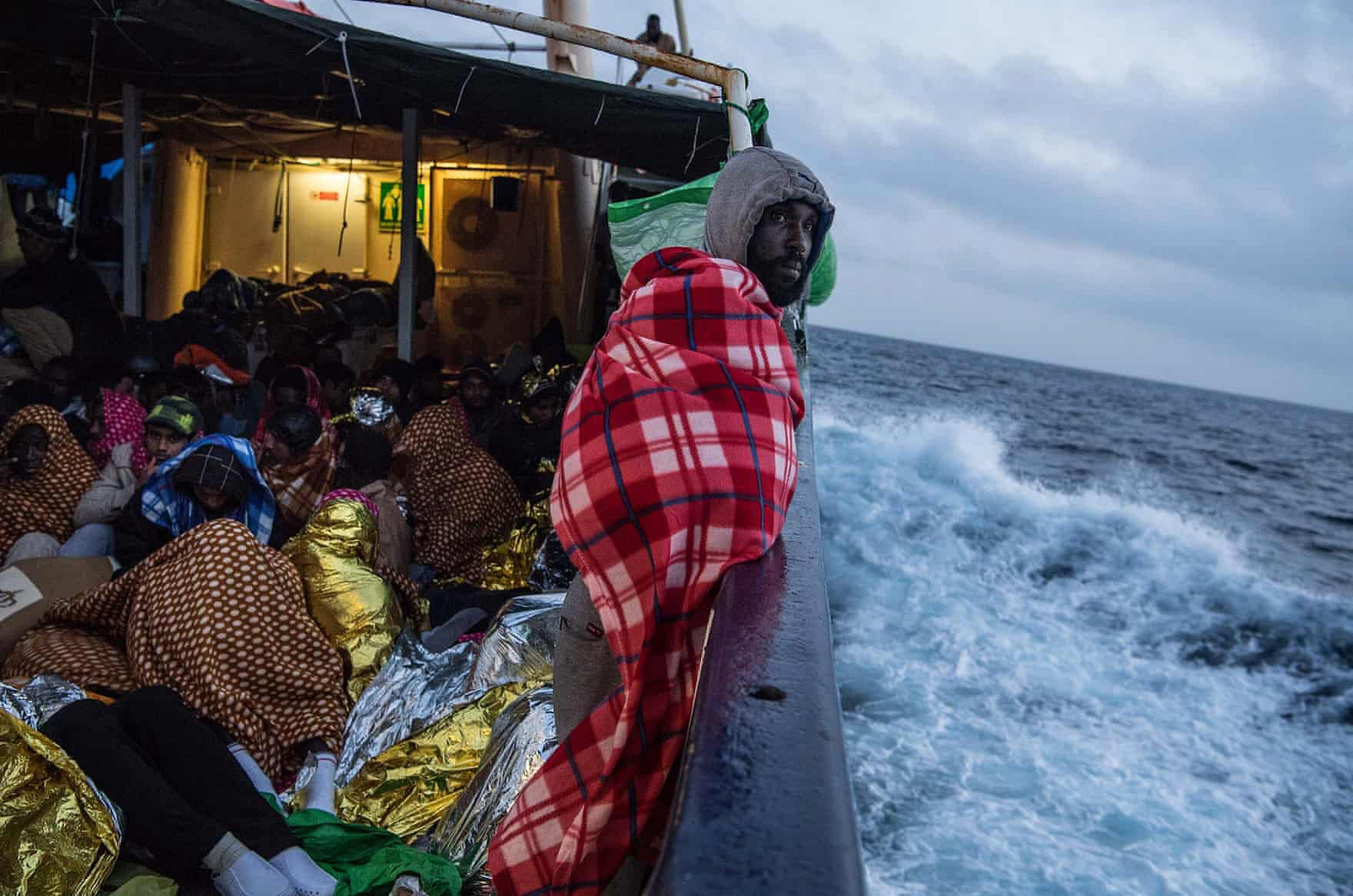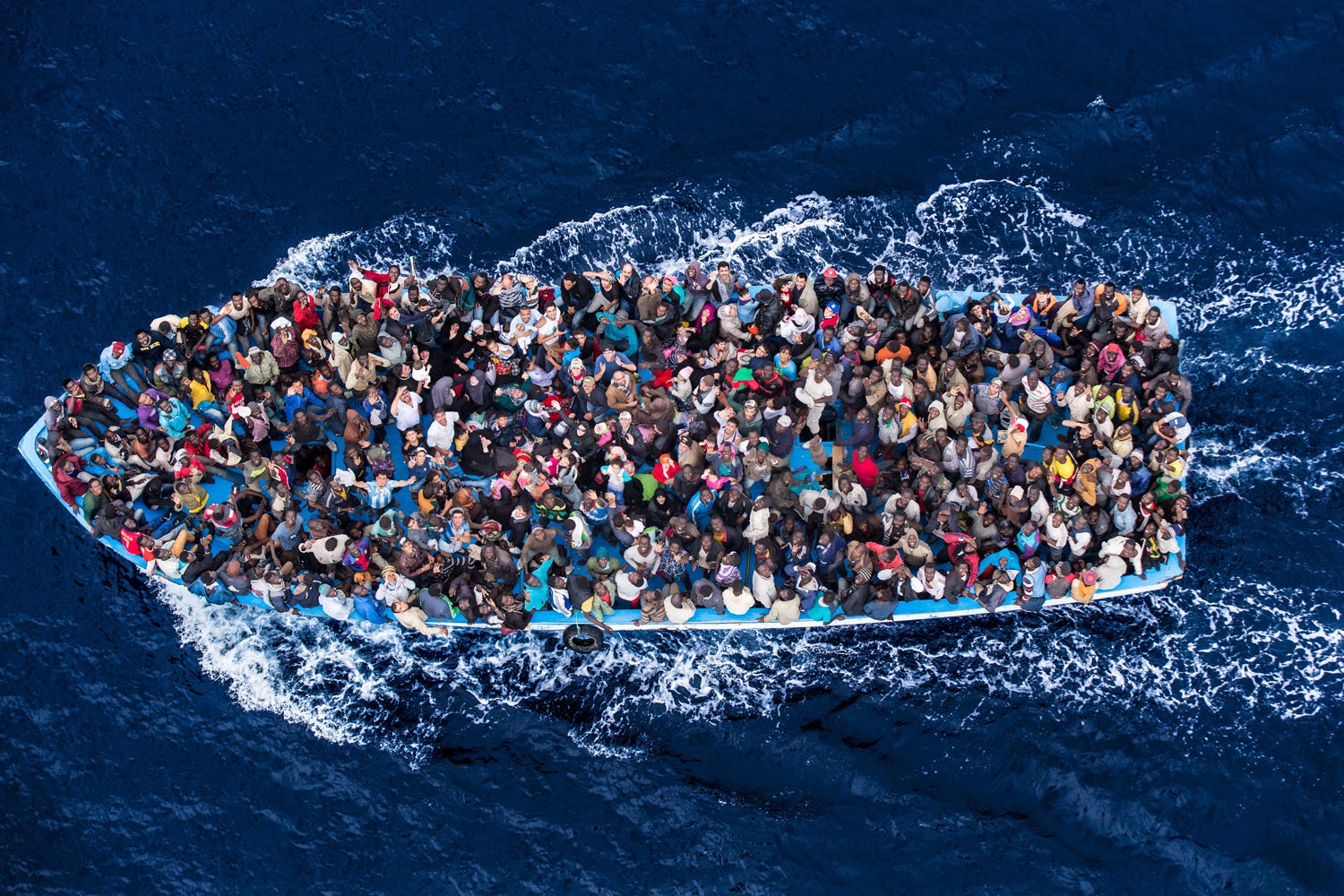A human being died. A human being who tried to swim from France to the U.K.. A clear act of despair.
We could have prevented it. France and the U.K. are two of the wealthiest countries on earth, which not only should but can provide real assistance to migrants without a problem. Instead, we close borders, put up fences, stop search and rescue operations, return them to countries where they face serious harm in violation of international law, let people live in misery and isolation, sometimes even use violence to deter them from making a life where they are (eg Calais).
Make no mistake, we are responsible, we are the ones killing migrants. Every single day, our countries choose to let humans drown at sea in the Mediterranean, in the Channel…

I cannot understand how this doesn’t shock more – is it because our countries are inherently racist and xenophobic?! Yes. If it was a French person drowning in the Channel in the pursuit of a better life there would be an outrage. But we have grown so accustomed to it that this is considered just another news.
I will not expose the moral, legal and historical responsibilities we have to welcome humanly and with dignity migrants, nor the opportunities that we have to gain from it. I will not detail the horrific numbers of deaths of people trying to reach Europe. I will not detail the atrocities they have been for. I will not explain that this could happen to us and we would only hope for a safe haven. I will not explain how we will be remembered in history books. This is not the point, and those are rational arguments to be made another time.
This is about yet another human life that has been lost as a direct consequence of our indifference. This is about our complicity in countless deaths. This is about our incapacity to think of one another as equals. This is about inherent racism and xenophobia. This is about wealth. This is about the fact that as Europeans, we consider ourselves more worthy of a decent life than others. This is about repeating the darkest part of history: we are letting human beings who are fleeing persecution, hunger and impossible lives die at our doorsteps. We are turning a blind eye. We are not holding our governments accountable.
“We” extends not only to European countries, but to the wealthiest countries on earth: the U.S., Australia and others are as guilty. As if money meant that our lives meant more.
They are not.
When Notre-Dame burnt, the western world was ‘in shock.’ So many fundraisers were launched, the French government made reconstruction a priority, leaders from across the world sent their ‘thoughts.’ A historical landmark burning is sad, but we are talking about a building, about a cathedral in Paris. Consider the importance we gave to this compared to the countless deaths that we could be preventing. But those don’t make the frontpage this way. Those don’t get big speeches from the French President. Those, according to our elected officials, do not require immediate actions. Of course, we do not have to choose to only tackle one problem, but in our public discourse and through our actions we give clear importance and priority to one.
Human beings have been dying on the deadliest route by sea – the Mediterranean – by the thousands every year. We could have prevented it, we have a duty to do so. If those migrants were from wealthy Western countries, wealthy themselves or white, we would hold minutes of silence, we would hold rallies, we would say never again. But in our collective inhuman consciousness, they don’t qualify for that.
It’s time to say never again. It’s been long since the first death. It’s time to hold ourselves accountable for our part in this. It’s time to mourn human beings who died due to our indifference, to mourn this Iraqi migrant whose family will never be able to understand how it came to this. It’s time to stop. It’s time for action, for decency.
We need to do better. This is on us. This is on our governments.
